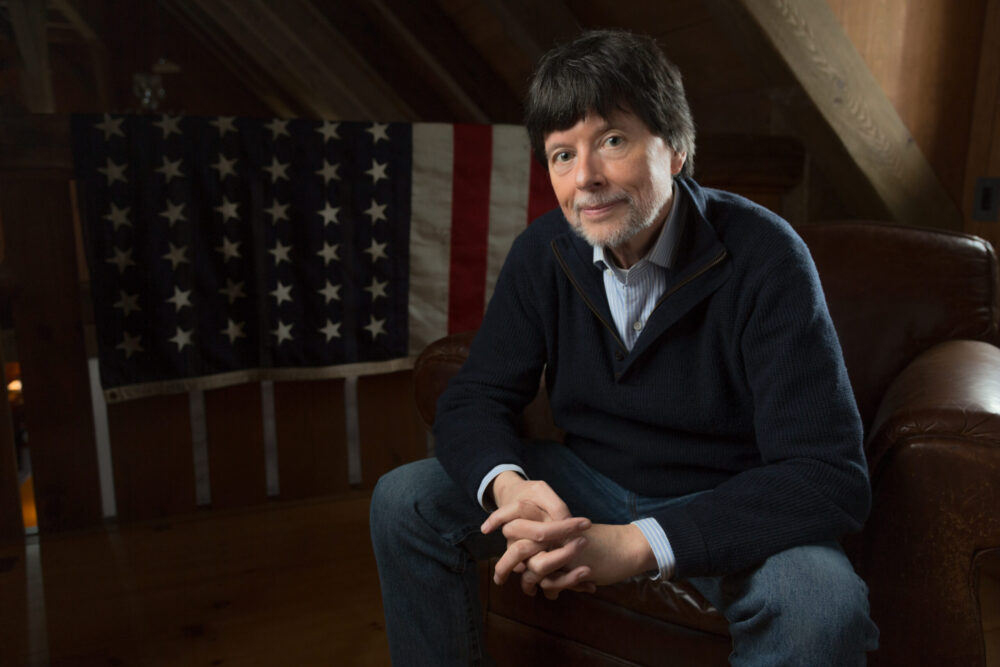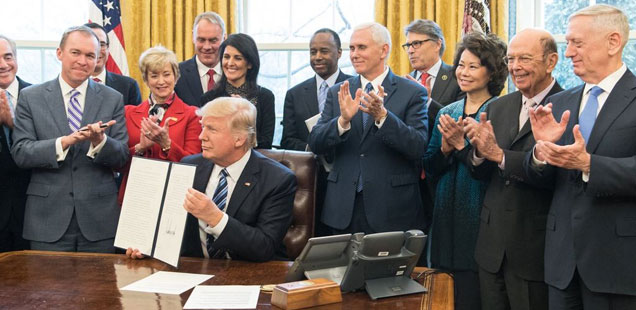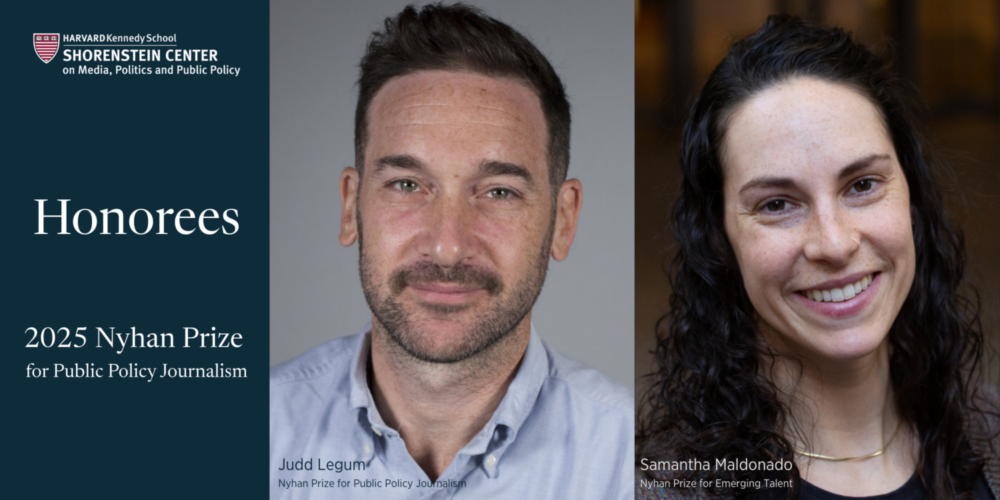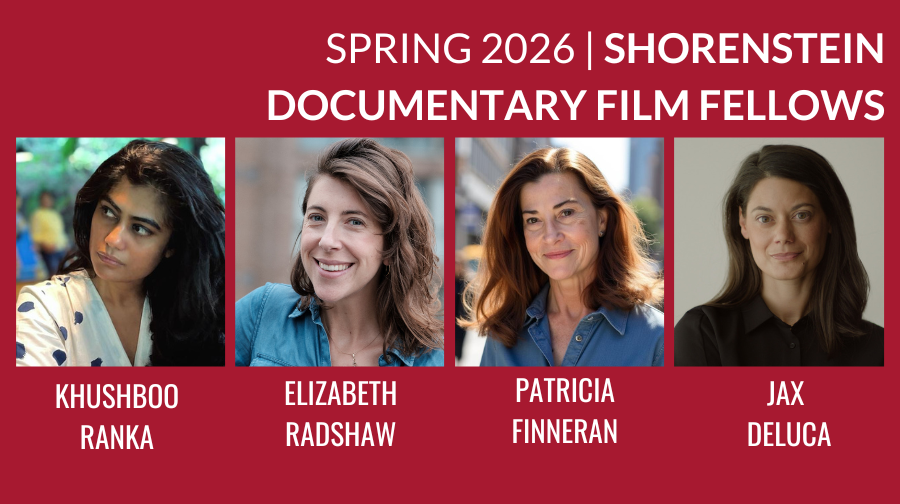
Center News
Ken Burns to give Theodore H. White Lecture on Press and Politics
Newsletter

Our weekly roundup of news found at the intersection of media, politics, policy and technology, from the Shorenstein Center and from around the web.
News Coverage of Donald Trump’s First 100 Days. A new report analyzes news coverage of President Trump’s first 100 days in office, focusing on ten U.S. and international outlets.
A Year of Impact at the Shorenstein Center, 2016-2017. Earlier this month, the Shorenstein Center released its 2016-2017 annual report and an accompanying video in which students, fellows, and faculty discuss why the Center is important to them.
Congratulations Class of 2017! This week, approximately 560 graduates, representing 99 countries graduated from HKS. John Kerry encouraged grads to “disturb the universe” with their activism, Joe Biden discussed an “obligation to get engaged” in public service, and Mark Zuckerberg called for big ideas and helping others find their purpose.
We want our kids to be fearless. Then this happens. Juliette Kayyem, Belfer Lecturer in International Security and Shorenstein Center affiliate, shares her perspective on this week’s attack in Manchester as a security expert and as a mother.
Echo from Boston bombings: Stay strong, Manchester. Dan Kennedy, spring 2016 fellow, writes that “tragic public events can drive people apart or bring them together. In our case, I honestly believe that the way we responded to the marathon bombings helped make us a kinder, more caring city.”
Responding to Terror in the Aftermath of the Manchester Attack. David Rohde, spring 2005 fellow, writes that “with a British parliamentary election two weeks away, the bombing is certain to have political repercussions.”
How Do You Fix Facebook Moderation’s Problem? Figure out What Facebook Is. Nico Mele, Shorenstein Center director, argues that Facebook is a media company “because it derives almost all of its revenue from advertising, by monetizing its audience attention.”
The New Arms Race: Can Quality News Defeat the Misinformation Onslaught? Nicco Mele spoke on a panel hosted by the International Center for Journalists that covered fake news and its impact on elections, fact-checking, and more.
Gender and Race in the Political Press. Farai Chideya, current Joan Shorenstein Fellow, discusses the lack of diversity in newsrooms and how it affects political coverage.
Roger Ailes: The Man Who Destroyed Objectivity. Neal Gabler, fall 2001 fellow, reflects on Ailes’ legacy, writing that he “may have been the most significant political figure of the last 35 years—which isn’t necessarily a compliment to those of us who believe media mavens shouldn’t also be political operatives.”
With Comey’s firing, GOP must put country before party. Melinda Henneberger, spring 2013 fellow, writes that “Republicans will have to stand up to the president instead of pretending they can’t see how serious the threat is. A threat not so much from Russia as from their own reluctance to find out why our commander-in-chief has fired two people.”
Montana Special Election Unlikely to Predict Larger Political Trend. Walter Shapiro, spring 2005 fellow, writes that “we don’t know if the 2017 special elections are predictors of larger political trends,” but it will still lead to a “barrage” of partisan talking points.
Turkish journalist Yavuz Baydar Receives Morris B. Abram Human Rights Award. Yavuz Baydar, fall 2014 fellow, who has been forced into exile following a crackdown on the press in Turkey, was honored for his work by the United Nations Human Rights Council.
Deborah Amos Receives Courage in Journalism Award. The International Women’s Media Foundation (IWMF) named NPR’s Deborah Amos, spring 2010 fellow, a recipient of their Courage in Journalism Award for her reporting in the Middle East and other conflict zones.
How Harvard Is Teaching Resistance. HKS student and the Shorenstein Center’s Lithgow Internship recipient Shanoor Seervai writes in Time magazine about strategies for resisting the Trump administration and its agenda.
Social Media Alone Won’t Improve Women’s Rights in the Middle East. HKS student Nabila Abu-Hantash writes about the role of social media in promoting women’s rights in the Middle East in the Kennedy School Review.
President Trump: Distressed Asset. HKS student Matthew Hassett writes about President Trump’s financial ties to Russia in the Kennedy School Review.
Sign up to receive Media and Politics Must Reads in your inbox each week. Also connect with us on Twitter and Facebook for more updates.

Center News

Center News

Center News